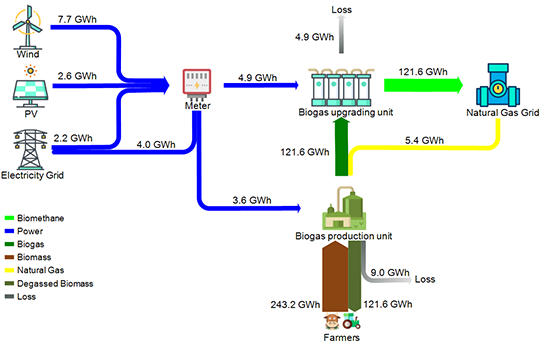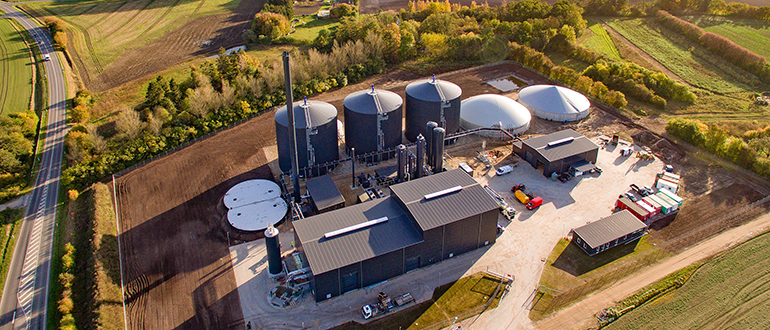Rasmus F. Riis & Alexander M. E. Plougmann
Master Thesis - Energy Technology - 2019
Even though the production and use of biogas is considered CO2 neutral, there are greenhouse gas emissions from biogas production. These emissions primarily stem from electricity and natural gas consumption, methane leakages and the transportation of biomass to and from the biogas plant. The focus of the thesis is on emission reductions from electricity and natural gas usage.
Using Nature Energy Midtfyn as a reference, an analysis of how much the emissions from the biogas production can be reduced by either introducing renewable electricity production on site, use biogas instead of natural gas for heating purposes or introduce electrolysis and methanation on site, will be investigated. Through this, the emission reductions, the socio-economic benefits from the reductions and the feasibility of the different solutions are carried out. The end goal is to provide a better product in the form of "cleaner" biogas.
It was found that the best solution, in terms of feasibility, was to introduce renewable capacity at the biogas plant as 1 MW of wind. This gave an IRR of 14.5 % and yielded an emission reduction of 16.8 % and a socio-economic benefit of 2.58 DKK/MWh produced biomethane. Using own biogas instead of natural gas for heating the biomass would result in an emission reduction of 22.75 % and a socio-economic benefit of at least 2.77 DKK/MWh produced biomethane. Combining the result of the first end second scenario yielded a total reduction of 39.55 % and a minimum socio-economic benefit of 5.35 DKK/MWh produced biomethane. From the end-consumer’s perspective, the solution with 1 MW wind installed would decrease the end consumer costs by 2.4 DKK/MWh biomethane, where the combined solution with using own biogas would increase the consumer costs by 20.47 DKK/MWh biomethane.
It was found that through hydrogenation and the addition of quick biomasses the biomethane production could be increased by 84.15 GWh yearly, which is an increase of 67 %. The hydrogenation scenario would however not be feasible due to the high capital costs of electrolysis and electricity expenses. In order to make hydrogenation feasible it was found that an increase in consumer price of 188 DKK/MWh was needed.

Collaborating Partners
Nature Energy
